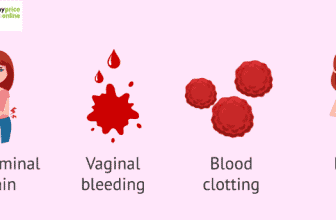
A full term pregnancy is defined by the American Clinical practice Guidelines (ACOG) and the Society for Maternal-Fetal Medicine (SMFM) as one that lasts between 39 weeks and 40 weeks and 6 days. This suggests that your pregnancy will last between one week before and one week after your due date. When compared to babies born earlier or later, full-term newborns have the best chance of being healthy. Keep reading to know ,more about full term pregnancy.
Related: Glucose test pregnancy and its importance

faint line on pregnancy test after 10 minutes
Full term pregnancy
On average, a pregnancy lasts 280 days (40 weeks).
When a baby is born before the 37th week of pregnancy, it is called premature or preterm.
Between the ages of 23 and 28 weeks, preterm birth babies are born.
Between the ages of 29 and 33 weeks, moderately preterm babies are born.
Between 34 and 37 weeks, late preterm babies are born.
Babies who are born before 39 weeks have an increased chance of respiratory problems, low blood sugar,
And other complications, which may necessitate admission to a neonatal critical care unit (NICU).
You can download a full term pregnancy guide from amazon
Related: Bleeding during pregnancy causes and treatment
Preterm births are caused by a variety of factors
A premature delivery can be caused by a variety of circumstances.
Women who have already had a preterm baby are at the greatest risk of having another one.
Women who are pregnant with twins or triplets, or who have uterine or cervical tumors, are at an increased risk.
Other variables that increase your chances of having a premature baby include:
Diabetes; hypertension; blood clotting abnormalities; placental or bleeding problems; being overweight or underweight;
Pregnancy intervals are short;
Prenatal treatment is provided late or not at all;
Stress, as well as smoking, consuming alcohol, or using illegal drugs.
Related: Early pregnancy discharge in detail

clear blue pregnancy test very faint vertical line
What are the dangers of having a baby too soon?
Having a baby before your delivery date puts your kid at risk for a variety of health issues.
The brain of your unborn child is the final major organ to develop throughout pregnancy.
During the last few weeks of your pregnancy, the area of the brain that the baby can use for thinking doubles in size.
Your baby’s brain weighs two-thirds of what it would weigh at 40 weeks when you’re 35 weeks pregnant.
The following are some of the health issues that preterm babies may face:
Breathing and keeping warm issues;
Feeding issues, since they may have difficulty sucking and swallowing;
Jaundice in newborns, which causes their skin and the whites of their eyes to appear yellow;
A lengthier stay in the hospital after birth or in the Neonatal Intensive Care Unit;
Are more likely to be readmitted to the hospital with complications; and
When infants are born, their brains are smaller and less developed.
Even though the infant appears to be healthy at birth, he or she may develop long-term health issues such as:
They are more prone to develop diabetes, high blood pressure, or heart disease as adults if they have Attention Deficit Hyperactivity Disorder (ADHD).
Related: Protein creatinine ratio pregnancy calculator and its usage
Full term pregnancy

All in all, About the full term pregnancy, If you’re only thinking about getting pregnant, you should try to get as healthy as possible before you do.
Related: Pregnancy test calculator week by week
References:







